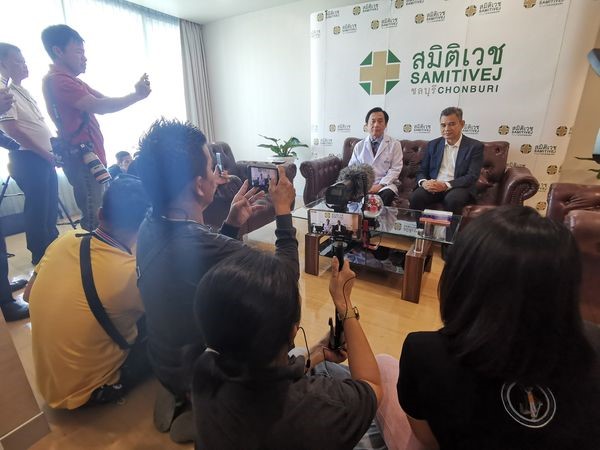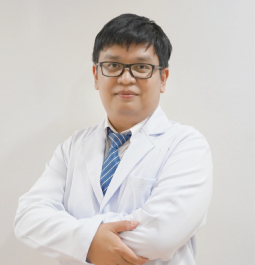Samitivej Chonburi Hospital Demonstrates Potential of Male-to-Female Sex Reassignment Surgery
(International Patient Assistance Center) article author : Chayamote Chayangsu, M.D., Suporn Watanyusakul, M.D.

On November 25, 2019, at 12:00 AM at Samitivej Chonburi Hospital in Chonburi, Thailand, Dr. Paradorn Kulkliang, Director of Samitivej Chonburi Hospital, along with Dr. Suporn Watanyusakul, a specialist in sex reassignment surgery, and Dr. Chayamote Chayangsu, held a press conference to announce the progress of male-to-female sex reassignment surgery (M to F SRS) in Thailand. The male-to-female sex reassignment surgery has become increasingly popular in Thailand, attracting both Thai and foreign patients. Recent advances in medical technology have made it possible to perform male-to-female sex reassignment surgery that results in genitals that are both aesthetically pleasing and functionally capable of providing sensation during intercourse.
Dr. Supron explained that male-to-female sex reassignment surgery has been around for approximately 70 years, with most patients traveling to the United States or Singapore to have the procedure performed. In recent years, however, Thai surgeons have developed the skills and expertise to perform male-to-female sex reassignment surgery that is comparable to that offered in any other country.
The early days of male-to-female sex reassignment surgery were limited to simply inverting the male genitals. However, modern techniques now allow surgeons to create genitals that are both similar in appearance and capable of providing sensation. This is accomplished by preserving the nerve endings at the tip of the penis and using them to create a clitoris or pleasure button.

Patients who are interested in undergoing male-to-female sex reassignment surgery must first undergo a rigorous screening process that includes consultations with two physicians, a psychiatrist, and a psychologist. Patients must also live as women for at least one year before surgery.
Samitivej Chonburi Hospital is one of the leading centers for male-to-female sex reassignment surgery in Thailand. The hospital's team of experienced surgeons has performed thousands of successful surgeries, and the hospital is known for its high standards of care and patient satisfaction.

The press conference was attended by representatives from the media, medical community, and transgender community. The event was well-received, and it helped to raise awareness of the possibilities of male-to-female sex reassignment surgery in Thailand.




